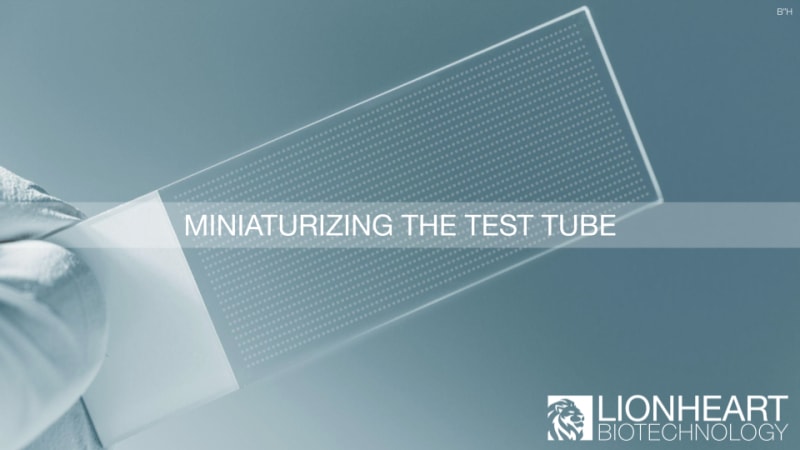
Every year 10 million people die from cancer, 6.8 million die from neurological disorders, and half a million die from neglected tropical diseases. Although there are tremendous advancements being made in these fields every day, there's still a dire need for better, cheaper, and more accessible treatments. By miniaturizing the test tube, Lionheart Biotechnology is making it possible to cut down the cost of discovering new therapeutic drugs by 75%. Our technology has the potential to drastically speed up the drug discovery process while reducing the environmental impact of chemical usage in laboratories.
We're achieving miniaturization by encapsulating thousands of drug candidates into microscopic structures on the surface of a glass slide. Biological structures are cultured over this array and imaged to detect hits. Quantitative dose-response models can be generated with data gleaned from these assays. In essence, we're making it possible to run thousands of experiments on a single chip.
Lionheart's work presents an immense leap forward in the field of drug discovery and development. Backed by years of research, Lionheart's chip platform aims to transform biotechnology and medicine, with the potential to be involved with the discovery of every new therapeutic treatment for a wide range of diseases. Our team is comprised of scientists, entrepreneurs, and students who are passionate about medicine, healthcare, and life saving technology.
-
Awards
-
 2022 Top 100 Entries
2022 Top 100 Entries
Like this entry?
-
About the Entrant
- Name:Max James
- Type of entry:teamTeam members:Max Samuel James, Founder of Lionheart Biotechnology
Dr. Steven Lenhert, Scientific Advisor, FSU Dept. of Biology
Dr. Jeff Whalen, Business Advisor, Founder of Magnetics Corporation
Brad Wollman, Marketing Advisor, IPX Marketing - Software used for this entry:CAD
- Patent status:patented

